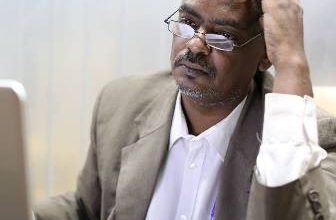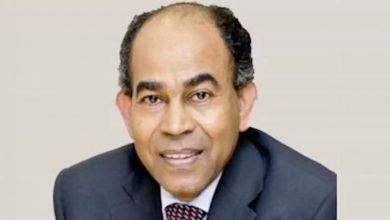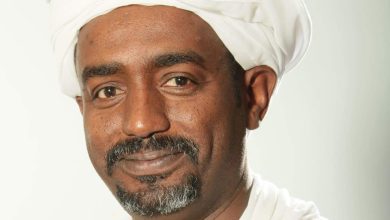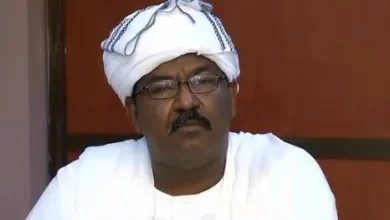Shifting Standpoints.. what’s new?
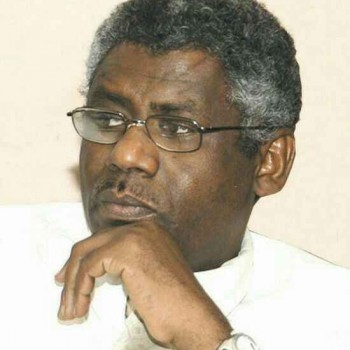
As I see
Adil Al-Baz
President Al-Burhan’s visit to Kenya and Addis Ababa, and Lieutenant General Kabashi’s visit to the Emirates, which was not announced, although the leaks of the visit came from the UAE side, rather, the invitation since Lieutenant General Kabashi’s departure from Khartoum was originally UAE.!! Those visits that took place began under the banner of (discussing the crisis of Sudan). These visits are is strange in timing, and why now, and what are the shifting elements that prompted these desiring meetings, many questions have been raised…. What is behind the bush?
The strangeness of these visits is that they come at a time when the Jeddah platform has officially stopped, even though confirmed information says that negotiations in the platform are still continuing on or under table!! However, we are trying here to understand what is behind that visit and the nature of the ongoing transformations in the Sudanese crisis in the African and Arab region.
The shift in the Kenyan position is almost understandable, since the positions of Kenyan President William Ruto, which he took after the outbreak of the war in Khartoum, siding with the Janjaweed, were mainly based on the fake opposition report, which assured him of the imminent victory of the rebel forces over the Sudanese army, as well as the relations of interests that the Kenyan president had with the rebel leader were liable to believe the illusions of the opposition, whose anti-Sudan activity is now centered in Nairobi so far.
When the war lasted a little longer and it became clear that the plot to seize power had failed and that the army was in control of the country, President Ruto rushed to gather IGAD, which immediately demanded an end to the fighting without any agreement, which meant protecting the rebels against the expected defeat. When Sudan rejected the IGAD invitation, along with its Kenyan presidency, the president Ruto rushed to ally with Ethiopian PM Abiye Ahmed to transfer the file with the same proposals and conditions to the African Union. When the entire plot failed and it seemed that the victory of Rapid Support in the war was nothing but an illusion and that the IGAD organization itself became in danger of splitting according to the position of Sudan and later Djibouti and South Sudan, Kenya quietly withdrew from its strange call.
Backdoor diplomacy began a while ago, and several attempts were made to correct the Kenyan position by countries that have close relations with Sudan (Salva Kiir’s attempt). Finally, President Ruto requested Leader Minawi to arrange a meeting for him with the Sudanese President, who was refusing any meeting with him. Minawi was finally able to convince President Al-Burhan, stressing to the President that the Kenyan President has a new position.
The meeting was arranged last week in Nairobi, and the President explained the nature of the war and its developments, pointing out Kenya’s position in support of the rebellion and Sudan’s reactions towards that position. Minawi’s participation in the meeting was very positive as he alerted the Kenyan president to the dangers of supporting the rebellion and its practices in Darfur, including the killing, displacement, and extermination of some African tribes. The Kenyan president was surprised by much of the information he received at the meeting regarding the atrocities committed by the rebels, in addition to his unawareness of the growing Sudanese opposition activity in Nairobi. He promised to rectify the situation. He indicated that he would call IGAD for a meeting to reconsider the American position on the Sudanese crisis.
n the same context, and based on the same information and mediations, Abiye Ahmed was met with and all the papers were revealed, and reference was made to the extremist Ethiopian position in favor of the rebellion and his reception of rebel and the elements opposing the Sudan government. He even reached the point of not recognizing the government itself and barring weapons destined for it.
The shifts in the Kenyan and Ethiopian positions were based on three facts. The first was the progress achieved on the battlefield, which left no room for doubt that the army was on the threshold of a brilliant victory over the rebels and entirely defeating them. In the last speech of the rebel Abdul Rahim Dagalo, the confusion and predicament that the rebel forces were suffering from, which was in his last meeting with Zalingei giving tidings of the liberation of Sudan, returned to flatter President Al-Burhan with a confusing conciliatory speech. The day before yesterday, he was greatly confused and disappointed in El Daein when the native administrations refused to attack El Daein, threatening to withdraw the Rizeigat people from the Rapid Support. This means that the rest of the cities of Darfur will not be easy to surrender, as the Janjaweed elements and mercenaries practice corruption. The thing that made El Daein people prevent them will not be accepted by any of the residents of the other cities of Darfur, particularly since it has become clear to everyone that the rebels are unable to manage the cities that they have seized, as they were unable to manage them and exterminated their residents (as happened in El Geneina). All the cities that they entered, people flee out in masses. Who can guarantee their safety under the rule of the savages?!! The rebels planned to control all of Darfur and head towards Khartoum… but they fell into the trap of Darfur and were unable to control it, and most of its largest tribes turned against them. Now the Massalit have become completely against the Janjaweed, and the Zaghawa Council announced their siding with the Sudan armed forces, and today the movements announced their fight against the Janjaweed and the Fur are originally against and they do not trust them. Thus, the rebellion lost the largest tribes in Darfur, lost the Battle of Khartoum, and lost all of North Sudan and Kordufan. It is ended up with a rebellion that is rejected by all the people of Sudan who are killed, looted and raped by its weapons and soldiers.
The third factor that caused this transformation was the patient and diligent diplomatic work between African presidents, with the help of some friends, in influencing the African position.
The final factor is the shift in international public opinion towards the crisis after the crimes committed by the rebel forces, which is publicized in the international press, what it called the second genocide, in which African tribes are exposed to it at the hands of the Janjaweed once again.
The move that seemed incomprehensible was Lieutenant General Kabashi’s move towards the Emirates, which is still supporting the rebellion. Lieutenant General Kabashi’s departure from Khartoum was incomprehensible in light of the presence of President Al-Burhan abroad and the battles were raging in Khartoum. Then his visit to the Emirates came to make the matter even more mysterious. Lieutenant General Kabashi realizes that any deal under the table that saves the rebellion will not be acceptable to either the Sudanese people or the army preparing to eliminate the rebellion. So, what is the nature of that visit and what is the UAE’s agenda at this stage of the war? Particularly since the Emirati supplies to the rebellion are about to stop after the Zaghawa decided to fight in the war, which will decisively affect the positions of the Chadian government, which has remained an outlet for that support from Um Jaras and other sites. Is there anything new element in the UAE’s position, or is it an attempt in harmony with the attempts of the conspiring African leaders to stop crushing the rebels and search for a trick to reposition them again in the military and political arena…? too late!!!
All of these transformations that are taking place internally, regionally and internationally indicate that the war is at an end and that the clear loss of both the rebels and their allies is imminent. Positive dealing with these transformations must be done carefully so that these new transformations in positions are not allowed to achieve for the rebels through deception what they were unable to achieve in battlefields.
The success of Saudi mediation in ending the rebellion peacefully will not be in the interest of the rebel supporters, and therefore there are attempts to withdraw the Sudanese crisis file in favor of African mediations after the backtrack shown by President Ruto and PM Abiye Ahmed.
There is an important indication that the leaks coming from Jeddah indicate that the rebels have agreed to leave Khartoum and dialogue has begun on the details and other items that the rebels want to resolve based on the temporary gains that they imagined they had achieved in their war in Darfur.
